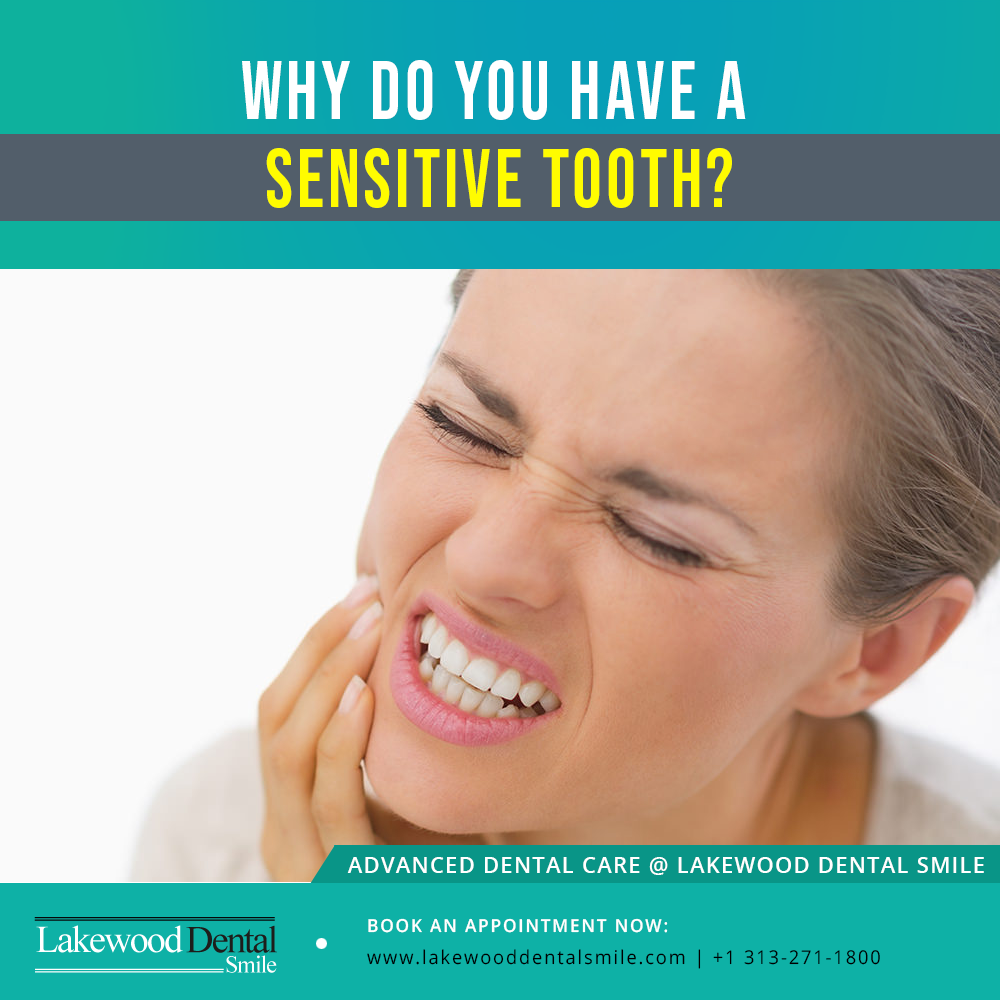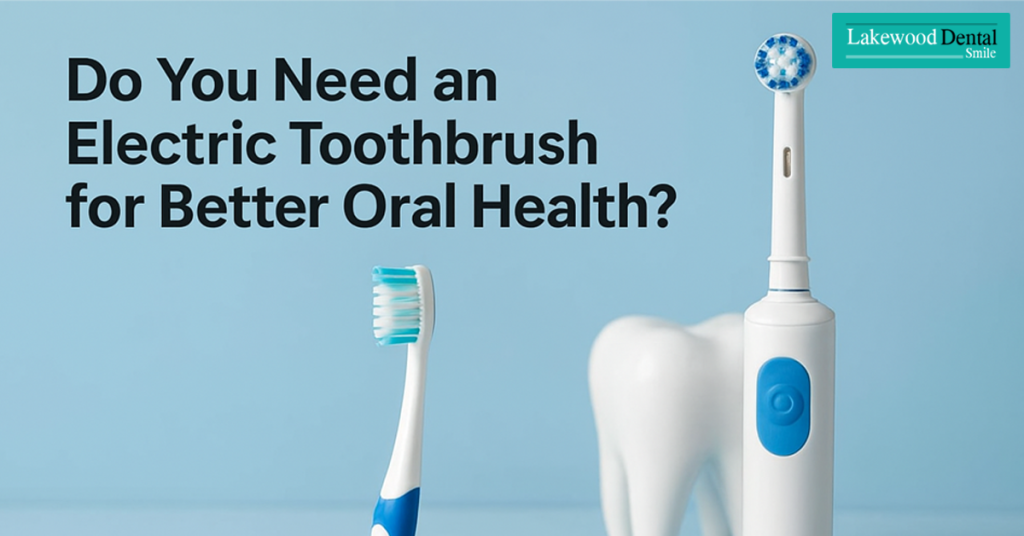Sensitive teeth are more common than you might think. If you’ve ever felt a sudden jolt of pain while sipping coffee or eating ice cream, you’re not alone. Dentists refer to this condition as dentin hypersensitivity, and it affects people of all ages. While many assume it’s a minor irritation, ignoring tooth sensitivity can lead to bigger oral health issues such as gum inflammation, tooth decay, or even nerve exposure.
Understanding what triggers sensitivity — and how to treat it — can help you protect your teeth and enjoy your favorite foods without discomfort.

Understanding Teeth Sensitivity
When your teeth come in contact with certain thermal or chemical triggers, you might feel a quick, sharp pain. This happens when the underlying dentin layer becomes exposed. Dentin is covered by enamel in healthy teeth, but once that protective layer wears down, stimuli like cold air, acidic drinks, or sweet foods can reach the nerves inside your teeth, causing discomfort.
The first step toward relief is understanding the root causes behind sensitive teeth and how to prevent them from worsening.
1. Intense or Improper Brushing
Many people believe brushing harder means cleaner teeth — but that’s a myth. Brushing too forcefully or using a hard-bristled brush can wear away enamel, cause gum recession, and even make your teeth appear longer. Once enamel erodes, dentin becomes exposed, leading to sensitivity and pain.
Tip: Use a soft-bristled toothbrush and apply gentle, circular motions. Focus on consistency rather than pressure.
2. Bruxism (Teeth Grinding)
Bruxism, or involuntary teeth grinding, is one of the most common causes of sensitive teeth. It often occurs during sleep and may be linked to stress, anxiety, or misaligned teeth. Over time, grinding wears down enamel, causes jaw pain, and can even lead to small fractures.
Solution: Consult your dentist for a custom night guard to protect your teeth while sleeping. Managing stress through relaxation techniques can also help.
3. Receding Gums
When gums recede, they expose the tooth roots — areas that lack enamel protection. This makes teeth more vulnerable to hot or cold foods. Receding gums may result from poor brushing habits, smoking, or gum disease.
Preventive care: Maintain good oral hygiene and visit your dentist regularly for professional cleanings. Early detection can prevent further gum loss and protect your tooth roots.
4. Enamel Erosion
Enamel is the hardest material in the human body, yet it can slowly wear down due to diet and lifestyle factors. Acidic foods, carbonated drinks, and even frequent vomiting (as in acid reflux) can weaken enamel. Once enamel erodes, sensitive teeth become inevitable.
Protective advice: Limit acidic foods and rinse your mouth with water after consuming them. Using fluoride toothpaste can also help remineralize enamel.
5. Fractured or Cracked Teeth
Cracks in teeth can expose the inner dentin layer or even reach the pulp, where nerves are located. These fractures might occur due to injuries, biting on hard objects, or bruxism. Once a tooth is cracked, temperature changes or pressure can cause sharp pain.
Treatment: See your dentist immediately. Depending on the crack’s severity, solutions may include bonding, crowns, or root canal therapy.
6. Recent Dental Procedures
Sometimes, temporary sensitive teeth occur after treatments such as teeth whitening, fillings, or crown placements. This sensitivity typically subsides within a few days, but prolonged discomfort may indicate an underlying issue like nerve irritation.
Tip: Avoid extremely hot or cold foods for a few days and use desensitizing toothpaste. Always inform your dentist if the pain persists.
7. Gum Disease or Inflammation
Advanced gum disease (periodontitis) can damage the tissue and bone that support your teeth, leading to sensitivity. As gums pull away, roots become exposed, making them prone to pain and decay.
Recommendation: Schedule professional cleanings and follow your dentist’s aftercare instructions carefully. Treating gum inflammation early can reverse sensitivity and preserve your smile.
Benefits of Treating Tooth Sensitivity
- Improved Comfort: No more sharp pain from cold or sweet foods.
- Stronger Enamel Protection: Prevents further erosion and decay.
- Enhanced Confidence: Enjoy eating and drinking without fear or hesitation.
Fixing sensitive teeth not only restores daily comfort but also prevents long-term complications like cavities or nerve damage.
Patient Scenario
A 42-year-old patient from Dearborn visited Lakewood Dental Smile complaining of sharp pain when drinking cold beverages. Examination revealed enamel erosion and mild gum recession — both classic signs of sensitive teeth.
Our dental team recommended fluoride treatment, gentle brushing habits, and a night guard for mild grinding. Within two weeks, her discomfort subsided, and she reported noticeable improvement. Regular follow-ups ensured her oral health stayed on track.
Aftercare and Maintenance Tips
- Use fluoride or desensitizing toothpaste daily.
- Avoid acidic foods and carbonated beverages.
- Visit Lakewood Dental Smile every six months for checkups and cleanings.
- Drink plenty of water to maintain saliva flow, which naturally protects enamel.
By consistently following these habits, you can prevent sensitive teeth from returning.
Conclusion
Dealing with sensitive teeth doesn’t have to be a lifelong struggle. Identifying the cause and adopting preventive habits can bring long-lasting relief. At Lakewood Dental Smile in Dearborn, Michigan, our experts provide personalized care to treat sensitivity, restore enamel, and protect your smile. Book your appointment today to start enjoying your favorite foods again — pain-free.




